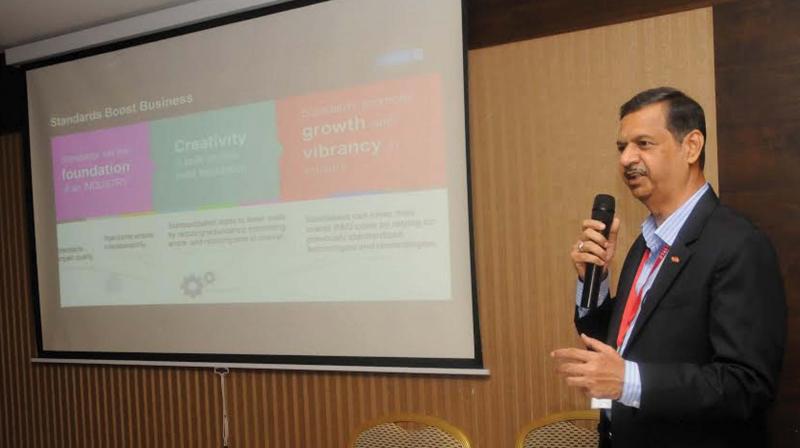Film has changed, projector has not: Ujwal N Nirgudkar
Ujwal N Nirgudkar speaks at 21st IFFK.

Thiruvananthapuram: At a movie hall, everything from the popcorn you eat, to the building you sit in has to comply to standards set by the Government of India. But there’s nothing to ensure the quality of the picture and sound of your movie. "Is that fair to the viewer?" asked Ujwal N Nirgudkar, Chairman, Society for Motion Pictures and Television Engineers – India Section. He was speaking at a seminar on 100 years of SMPTE as part of the International Film Festival of Kerala (IFFK). In those 100 years, cinema has undergone so many changes, that if you are told of actors stepping out of the screen to kiss you, you might probably believe it.
However the projectors at your theatre have not been calibrated, so that you as a viewer can fully utilise the transformation cinema has been through. For example, unlike the film era when colour was locked in a processing lab, the colour in the digital era is created at the projector. “That’s why it is important to calibrate the film projectors. We have approached the Information and Broadcasting Ministry so that the government would make standards mandatory,” he said. As we wait for the government machinery to turn, the country is getting ready for another historical turning point. For, according to Ujwal, mobile devices will be the major entertainment provider. “Netflix has already started. Jio has signed with 6000 movies,” he says, listing the signs of the time to come. Latest movies will soon be released in villages, he said.
“There are 350 million internet connections in the country, in 2016. There are 100 crore mobile phones for over 125 crore people, but just 11,000 screens. Especially as theatre penetration is not enough, mobile phones will be the biggest entertainment provider,” he said. When theatres cater to the masses, mobiles are meant for the individual, quite like Thomas Alva Edison’s kinematoscopes. The coin-operated device, a forerunner of motion pictures, would be kept at movie parlours. “Edison did not like the idea to have a common projection for many people, as that would bring the revenue down,” he said.
Now, cinema seems to have come full circle. But mobile viewing is not going to replace the charm of theatre viewing. It will only be additional revenue for the filmmaker. In fact, Ujwal said that small budget filmmakers, who cannot afford a theatrical release and are not famous enough to attract the attention of Netflix, are trying out mobile releases. “There are pay-per-use models, so that every view will get the filmmaker some money. Newer business models are evolving. In the future, maybe the user will be able to buy different segments of a film, like say a dialogue or a song, at different prices,” he said. And to think that all of it started with the Lumiere brothers who left cinema, because they thought it had no future.

